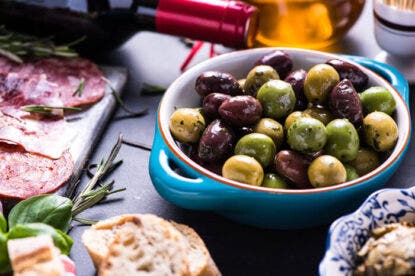A hypertaster is an individual whose nose or palate is so sensitive, he or she can detect nuances in wines that most of the population cannot. Such individuals first were identified by a Yale professor, Linda Bartoshuk (now at the University of Florida, Gainesville), in the 1990s. I recently spoke with Bartoshuk, and she described supertasters (she dislikes the term “hypertasters”) as “people who experience very strong tastes, enhanced intensities” to aromas and flavors, which are basically the same thing. Research confirms that supertasters have more tastebuds than the average person, Bartoshuk says.
In her syndicated column published in December, the English wine writer, Jancis Robinson, wrote about hypertasters. The question Robinson asks is whether hypertasting is a benefit for a wine critic, or a handicap. At first, it would seem to be a benefit. We turn to experts to tell us about quality. And so the reasoning goes, a supertaster is the best person to tell us if that Cabernet is special or should be shunned.
The issue is timely because some critics have claimed they discovered flaws, such as TCA, in certain wine brands that the vast majority of experts had not noticed. The implication has been that these critics are supertasters, and so it behooves us to listen to them. The wineries that were outed for these “flawed” wines were forced to spend millions making sure the alleged compounds—in concentrations so low they had not previously been known to be perceptible to humans—were eliminated. After Chateau Montelena was accused, the winery had to replace fermentation tanks, barrel racks, ladders and catwalks, and pay for repeated hand-scraping of the stone interior.
Beaulieu was outed for a similar flaw and spent a lot of money cleaning up the winery, but Raymond Chadwick, then president of Diageo Chateau and Estates, which owns BV, told the online publication, Wine Business.com, in 2002, “In fact, our wines contain concentrations [of TCA] below the sensory threshold of the vast majority of wine drinkers, including connoisseurs.” It raised the question of whether the public interest really is served by having ultrasensitive tasters, who may be the classic “fussy eaters,” in the position of evaluating wine.
A case can be made that this kind of outing, regardless of how much it hurts wineries, is good for consumers, because even if most wine drinkers would never detect these compounds, the wines would be cleaner. And who’s against cleaner wine?
But Robinson wonders if being a hypertaster may actually be a handicap. She reasons thusly: “I had always reckoned that for my job, describing and recommending wines, it would be best to be a normal taster. That way my sensitivities would most closely ally with those of the greatest number of my readers. If I am a hypertaster it could well be a huge disadvantage to me as a wine writer, making…wines seem more unattractive to me than to most of the rest of the population.”
Robinson concludes that if she is a hypertaster (and she doesn’t know if she is), then “If I enjoy wine less than most of you, you are very lucky wine drinkers indeed.” Which made me think of something Andy Waterhouse, then vice-chair and professor of enology at UC Davis, told me: “The problem is, by being ultrasensitive, you exclude a lot of wines you might otherwise enjoy.”
Hypertasting may once have had a purpose. A BBC program speculated that the gene responsible for it “could be a remnant of our evolutionary past, acting as a safety mechanism to stop us eating unsafe foods…” But there is nothing remotely unsafe about California wine these days, unless you happen to be allergic to it. Hypertasting seems like a throwback to a more primitive time when humans, like dogs, sniffed before they bit. It could be what scientists call a “vestigial” skill.
There’s a test that can indicate whether a person is a supertaster, and Robinson urges critics to “come clean,” to reveal whether or not they are hypertasters. The critics that are so sensitive to TCA have not taken the test, to the best of my knowledge. But I think consumers have a right to know if the critics they trust are perceiving things no one else is.
Wine critics play a necessary role not because nature blessed us with better palates, but because we taste much more than the average person. And when you do something a lot, you tend to get better at it. I don’t know if I’m a supertaster, but when I consider the downside, I hope I’m not. If I were a food critic, I wouldn’t want to be a picky eater, criticizing everything for not being perfect, and I don’t think that would be helpful to my readers. As a wine critic, I don’t want to be a hypertaster, for the same reason.
The topic of wine criticism, including hypertasting, is ripe for re-evaluation. We’ve taken a lot for granted all these years, without really asking the hard questions: Who should we trust? Why? Let’s start the conversation.
Published: April 1, 2007














